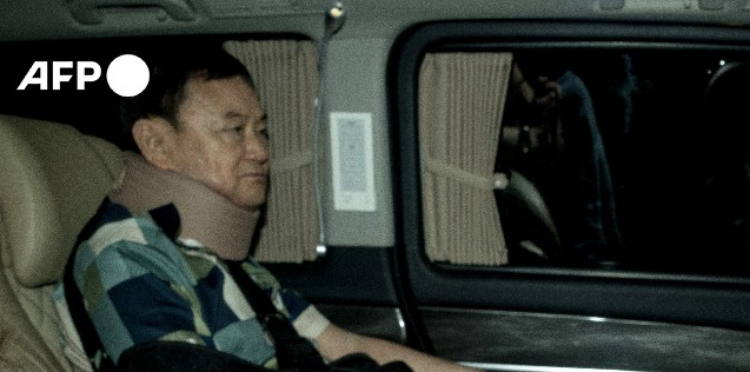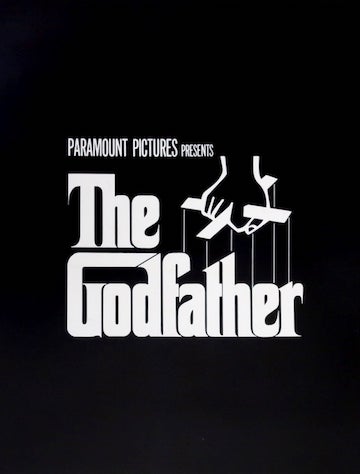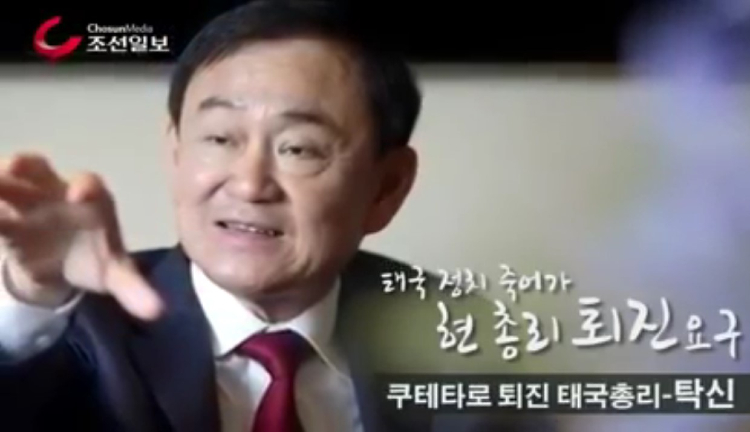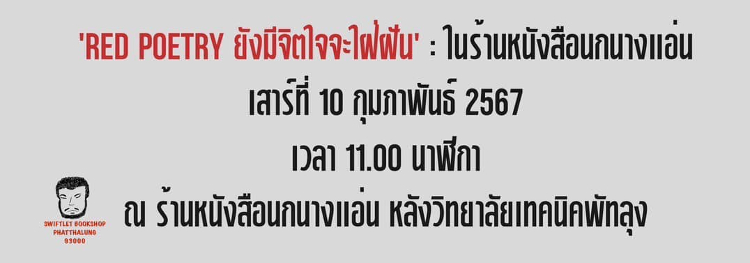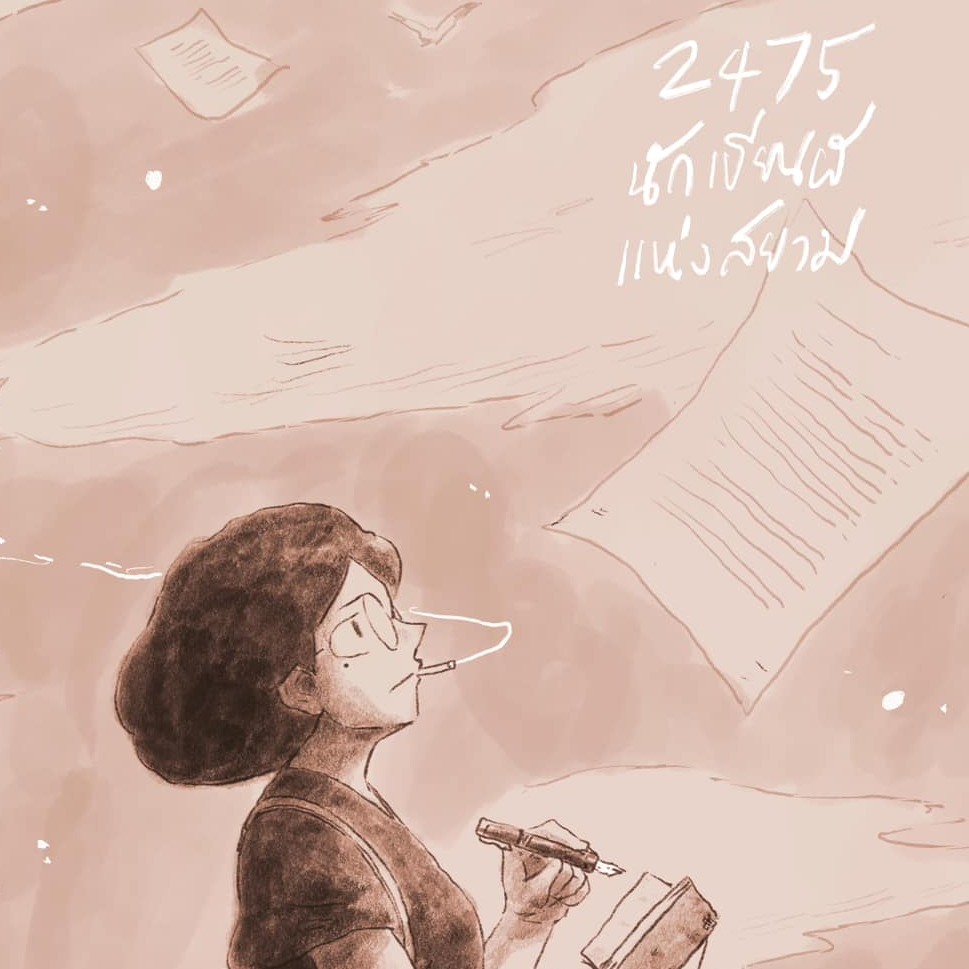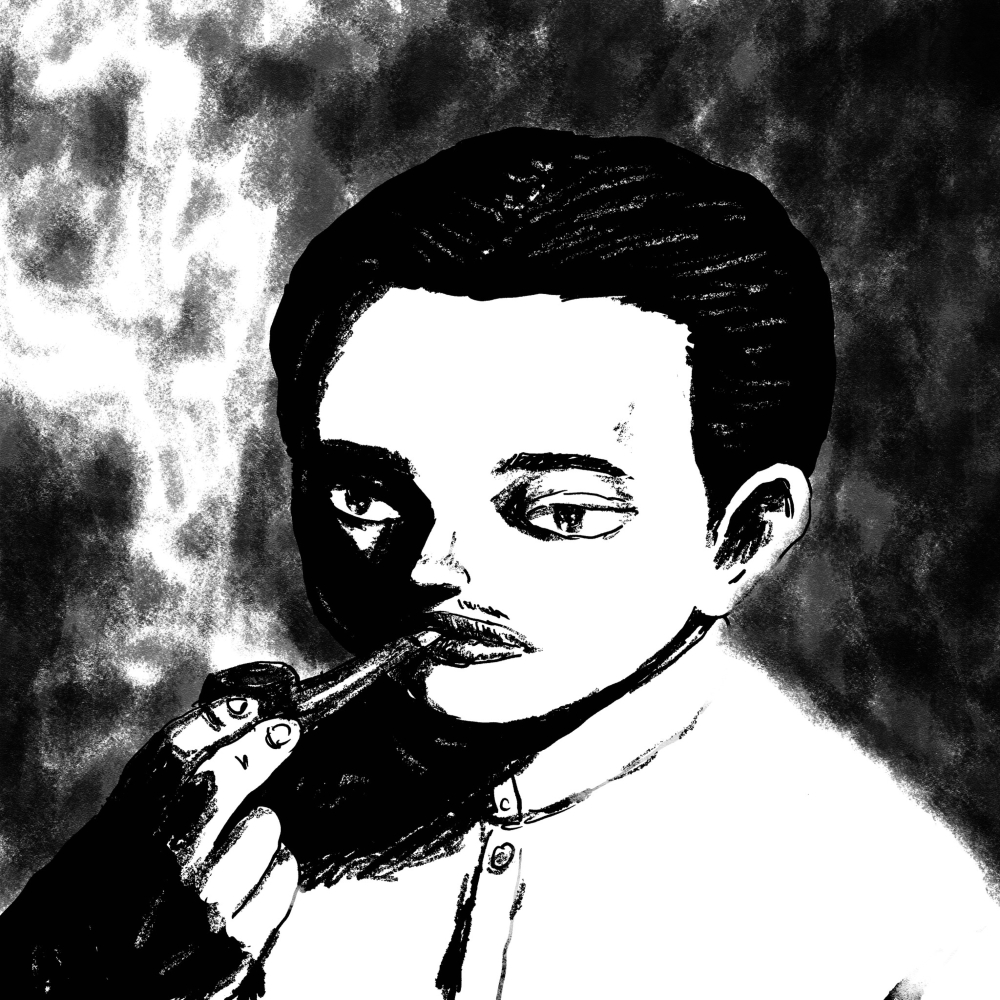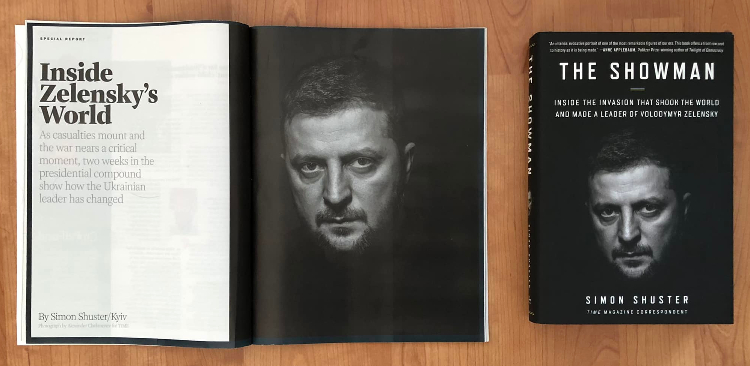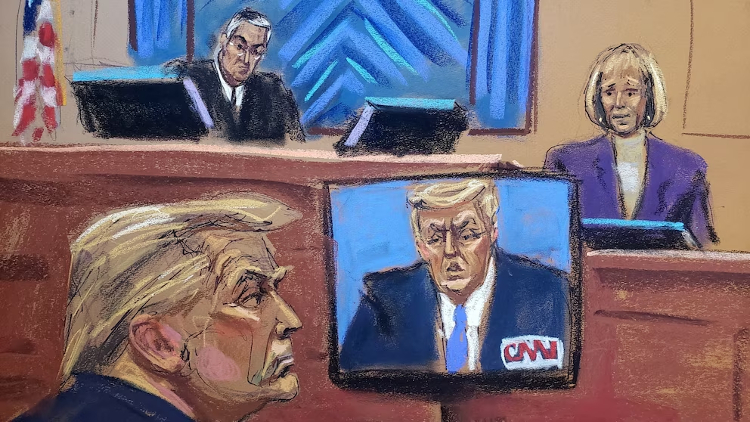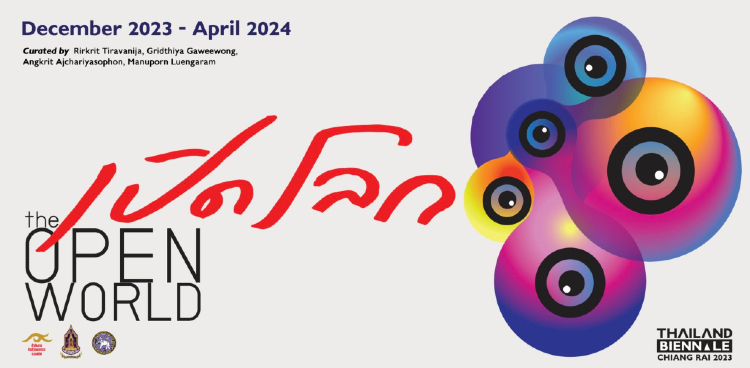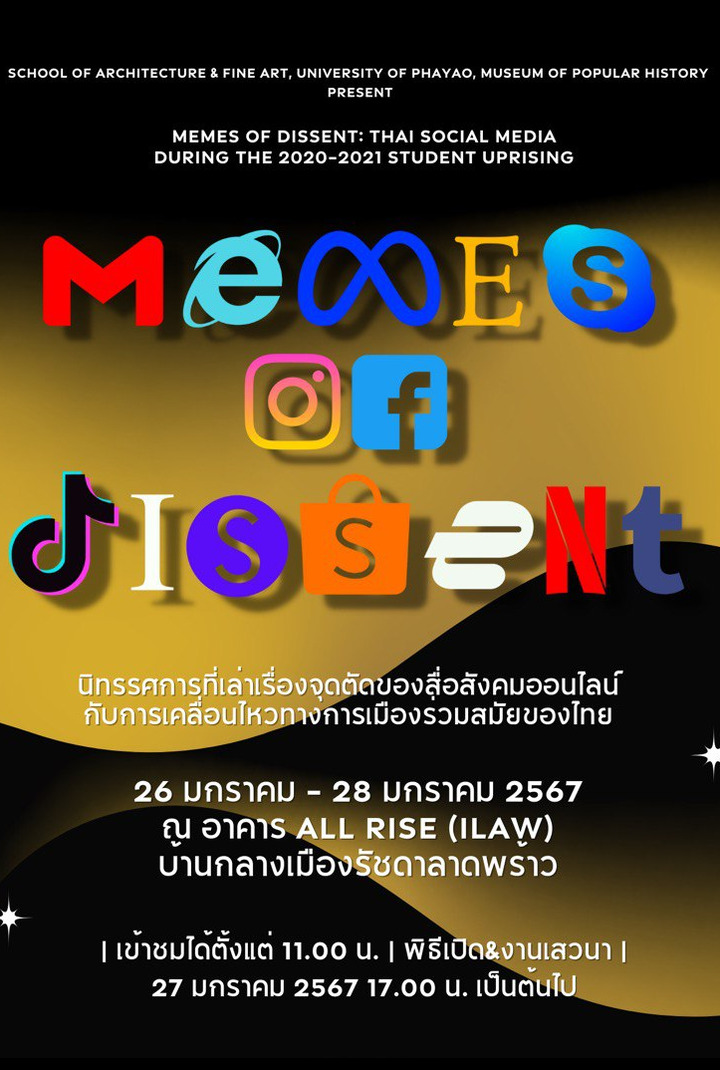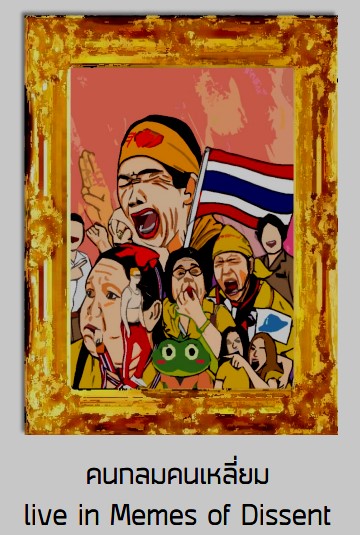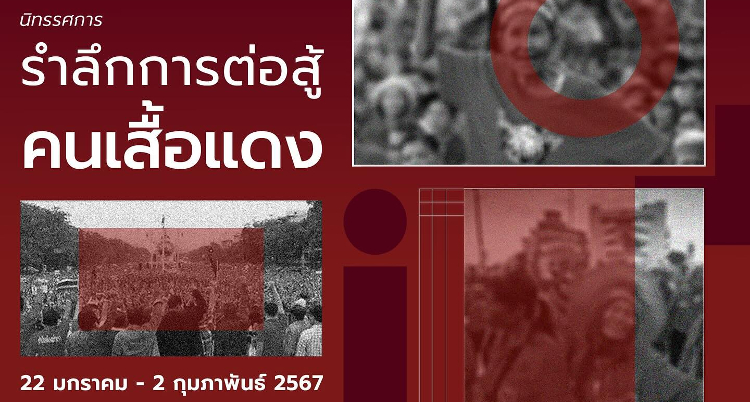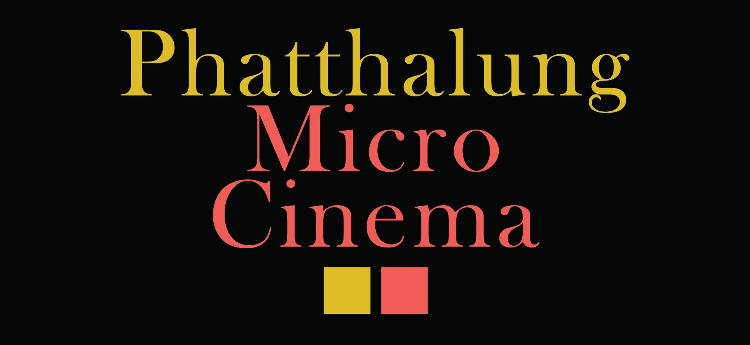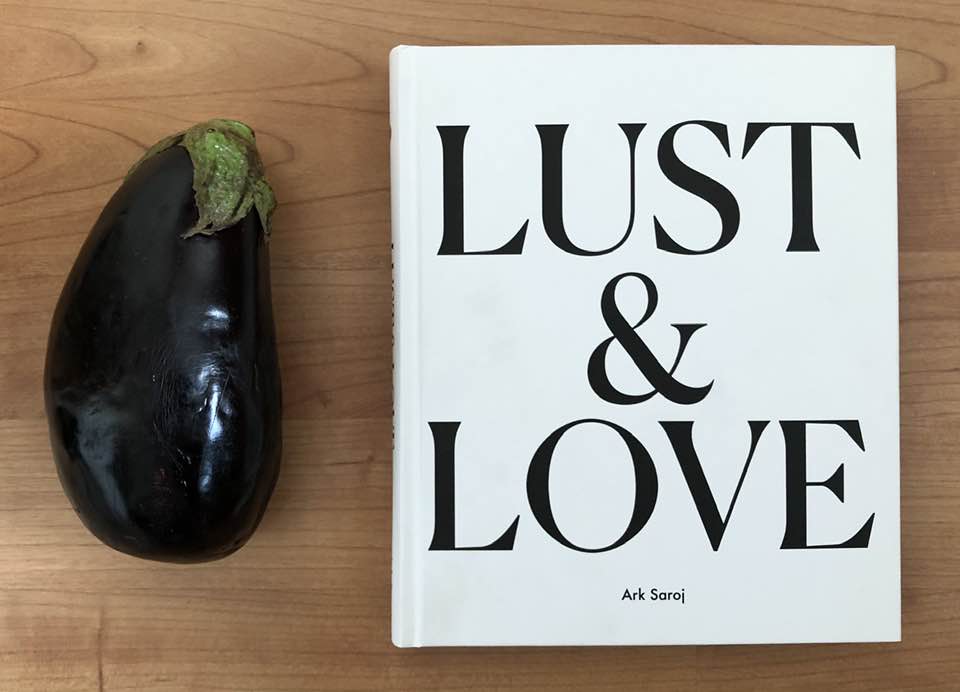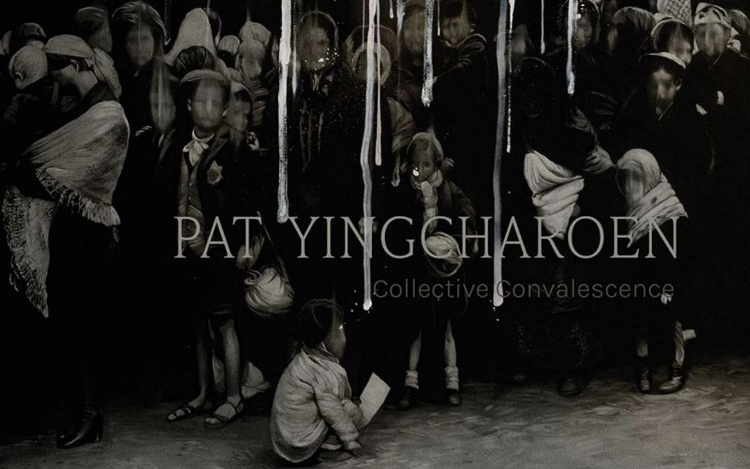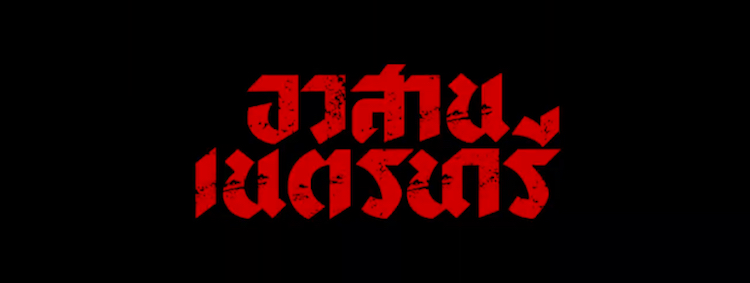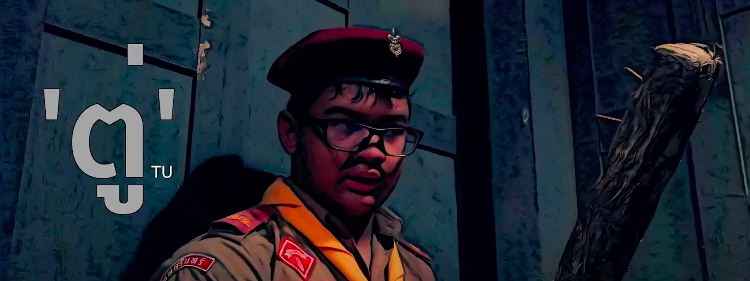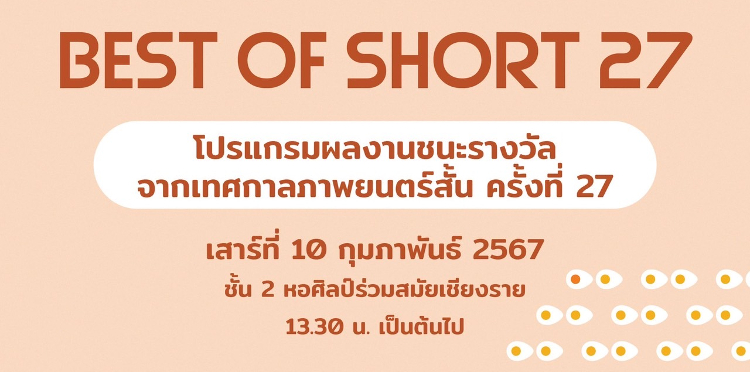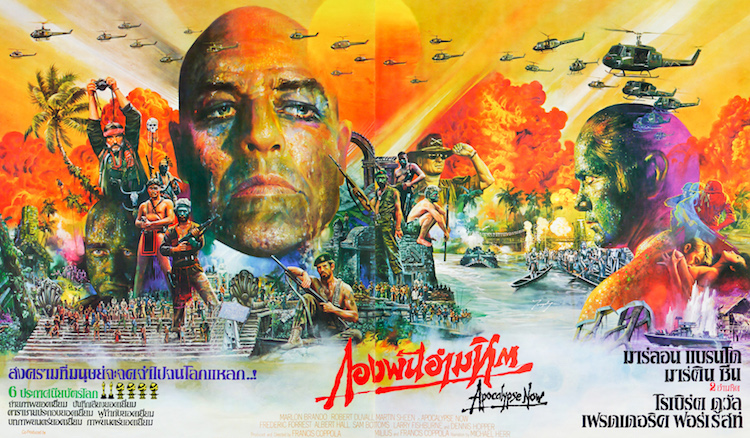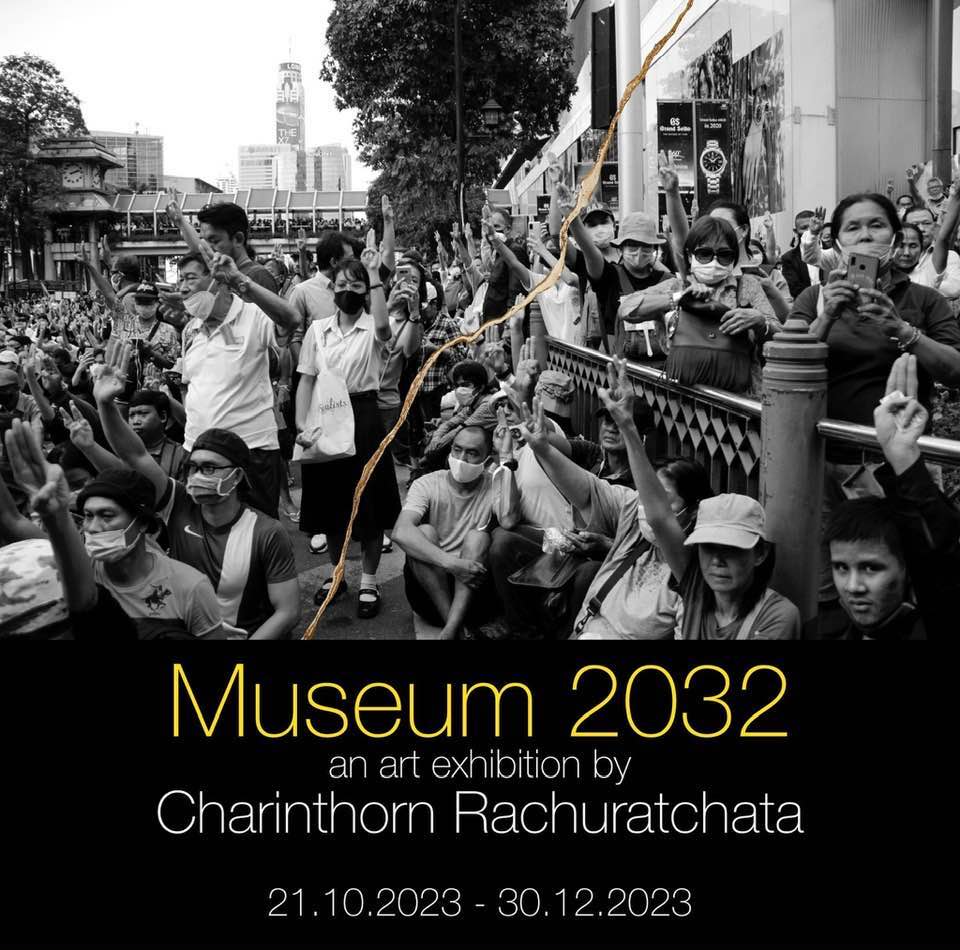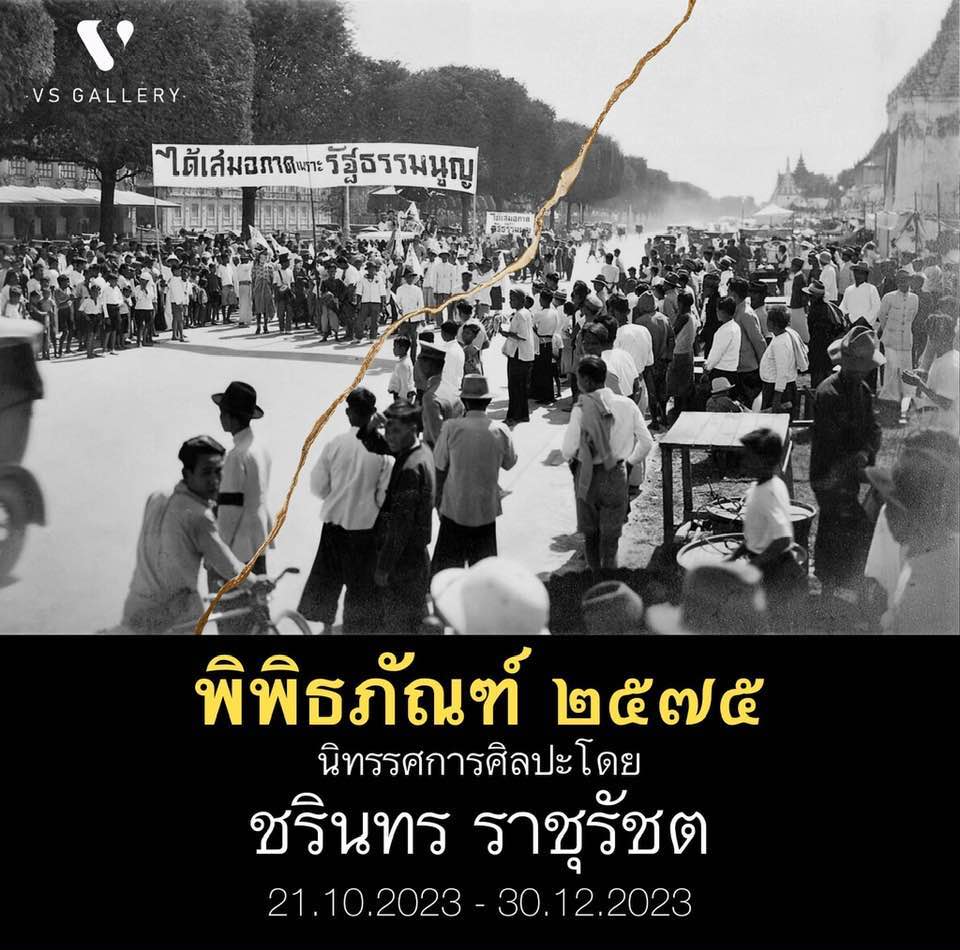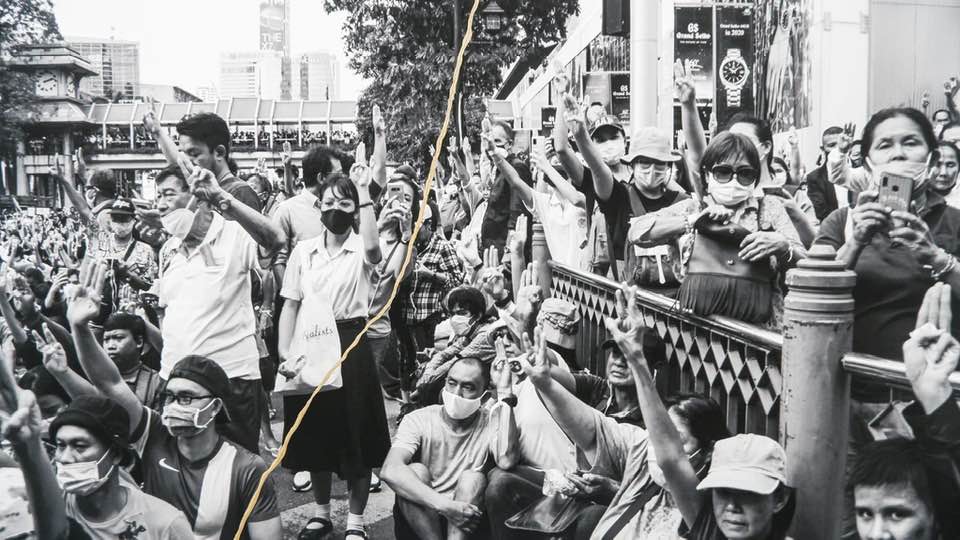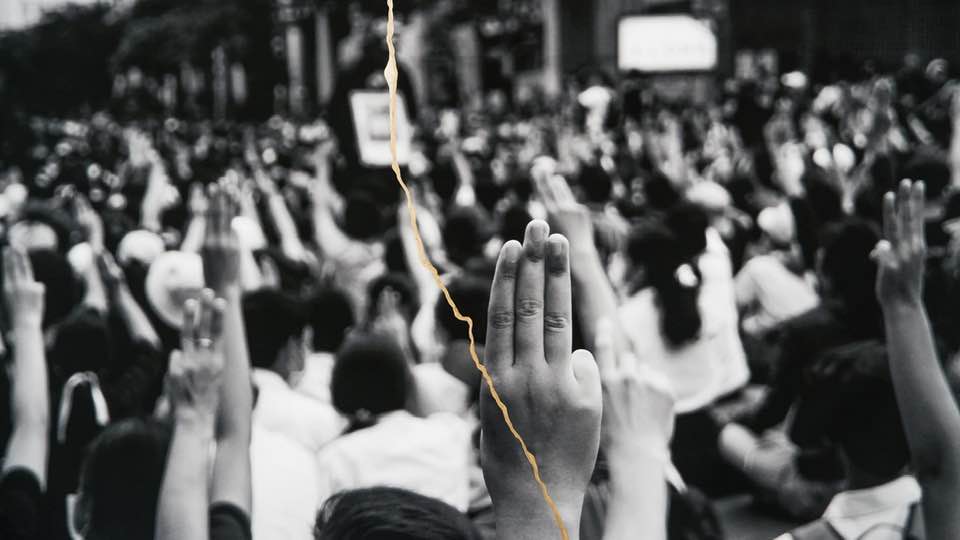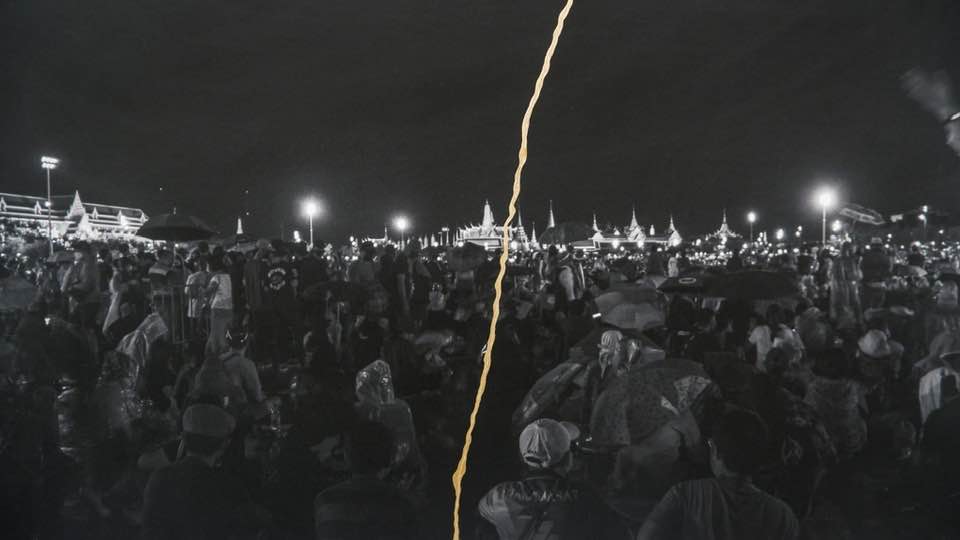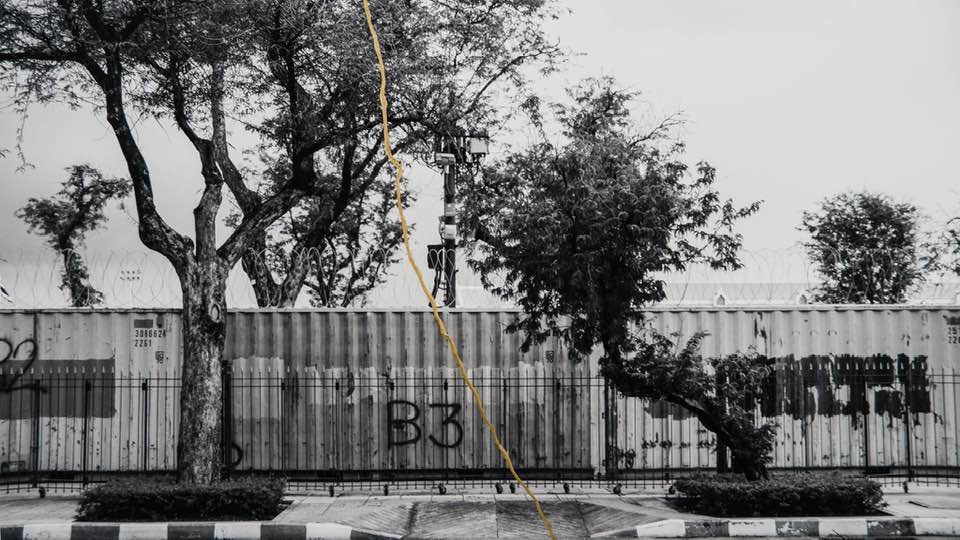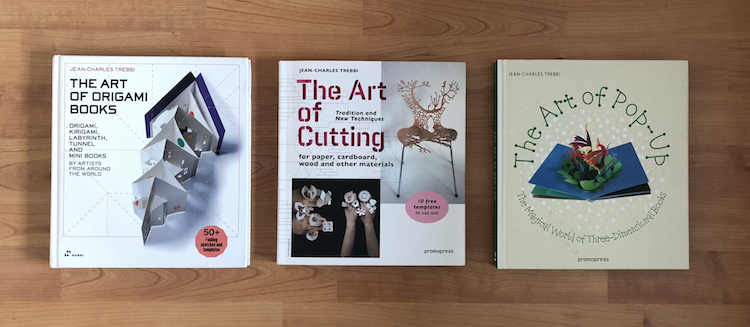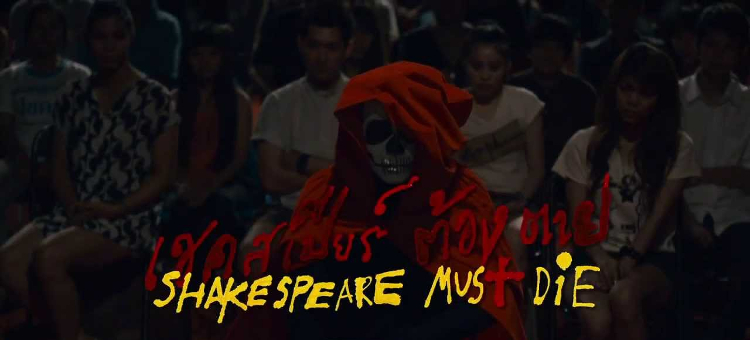
The ban on Ing Kanjanavanit’s film Shakespeare Must Die (เชคสเปียร์ต้องตาย) has finally been lifted by the Supreme Court. The court also ruled today that the Ministry of Culture, which banned the film in 2012, must pay 500,000 baht in damages to the filmmaker after her twelve-year crusade to reverse the ban (a campaign documented in her film Censor Must Die/เซ็นเซอร์ต้องตาย). The ban was upheld by the Administrative Court in 2017, though times have since changed, and Shakespeare Must Die appears to be an early beneficiary of a liberalised censorship policy announced by the National Soft Power Strategy Committee (คณะกรรมการยุทธศาสตร์ซอฟต์พาวเวอร์แห่งชาติ) last month.
Shakespeare Must Die is a Thai adaptation of William Shakespeare’s Macbeth, with Pisarn Pattanapeeradej in the lead role. The play is presented in two parallel versions: a production in period costume, and a contemporary political interpretation. The period version is faithful to Shakespeare’s original, though it also breaks the fourth wall, with cutaways to the audience and an interval outside the theatre (featuring a cameo by the director).
In the contemporary sequences, Macbeth is reimagined as Mekhdeth, a prime minister facing a crisis. Street protesters shout “ok pbai!” (‘get out!’), and the protests are infiltrated by assassins listed in the credits as ‘men in black’. Ing has downplayed any direct link to Thai politics, though “Thaksin ok pbai!” was the People’s Alliance for Democracy’s rallying cry against Thaksin Shinawatra, and ‘men in black’ were blamed for instigating violence in 2010. Another satirical line in the script—“Dear Leader brings happy-ocracy!”—predicts Prayut Chan-o-cha’s propaganda song Returning Happiness to the Thai Kingdom (คืนความสุขให้ประเทศไทย).
The parallels between Mekhdeth and Thaksin highlight the politically-motivated nature of the ban imposed on the film. Ironically, the project was initially funded by the Ministry of Culture, during Abhisit Vejjajiva’s premiership. (It received a grant from the ไทยเข้มแข็ง/‘strong Thailand’ stimulus package.) The Abhisit government was only too happy to greenlight a script criticising Thaksin, though by the time the film was finished, Thaksin’s sister Yingluck was in power, and her administration was somewhat less disposed to this anti-Thaksin satire, hence the ban.
Although the film was made twelve years ago, its message is arguably more timely than ever, as Thaksin’s influence over Thai politics continues. He returned to Thailand last year, and his Pheu Thai party is now leading a coalition with the political wing of the military junta. Not uncoincidentally, his prison sentence for corruption was commuted, and he was released on parole last weekend.
The film’s climax, a recreation of the 6th October 1976 massacre, is its most controversial sequence. A photograph by Neal Ulevich, taken during the massacre, shows a vigilante preparing to hit a corpse with a chair, and Shakespeare Must Die restages the incident. A hanging body (symbolising Shakespeare himself) is repeatedly hit with a chair, though rather than dwelling on the violence, Ing cuts to reaction shots of the crowd, which (as in 1976) resembles a baying mob.
The director was interviewed in Thai Cinema Uncensored, and the book details the full story behind the ban. (It also includes an insider’s account from a member of the appeals committee, who was obliged to vote to uphold the ban.) Ing doesn’t mince her words in the interview, describing the censors as “a bunch of trembling morons with the power of life and death over our films.”
Shakespeare Must Die is a Thai adaptation of William Shakespeare’s Macbeth, with Pisarn Pattanapeeradej in the lead role. The play is presented in two parallel versions: a production in period costume, and a contemporary political interpretation. The period version is faithful to Shakespeare’s original, though it also breaks the fourth wall, with cutaways to the audience and an interval outside the theatre (featuring a cameo by the director).
In the contemporary sequences, Macbeth is reimagined as Mekhdeth, a prime minister facing a crisis. Street protesters shout “ok pbai!” (‘get out!’), and the protests are infiltrated by assassins listed in the credits as ‘men in black’. Ing has downplayed any direct link to Thai politics, though “Thaksin ok pbai!” was the People’s Alliance for Democracy’s rallying cry against Thaksin Shinawatra, and ‘men in black’ were blamed for instigating violence in 2010. Another satirical line in the script—“Dear Leader brings happy-ocracy!”—predicts Prayut Chan-o-cha’s propaganda song Returning Happiness to the Thai Kingdom (คืนความสุขให้ประเทศไทย).
The parallels between Mekhdeth and Thaksin highlight the politically-motivated nature of the ban imposed on the film. Ironically, the project was initially funded by the Ministry of Culture, during Abhisit Vejjajiva’s premiership. (It received a grant from the ไทยเข้มแข็ง/‘strong Thailand’ stimulus package.) The Abhisit government was only too happy to greenlight a script criticising Thaksin, though by the time the film was finished, Thaksin’s sister Yingluck was in power, and her administration was somewhat less disposed to this anti-Thaksin satire, hence the ban.
Although the film was made twelve years ago, its message is arguably more timely than ever, as Thaksin’s influence over Thai politics continues. He returned to Thailand last year, and his Pheu Thai party is now leading a coalition with the political wing of the military junta. Not uncoincidentally, his prison sentence for corruption was commuted, and he was released on parole last weekend.
The film’s climax, a recreation of the 6th October 1976 massacre, is its most controversial sequence. A photograph by Neal Ulevich, taken during the massacre, shows a vigilante preparing to hit a corpse with a chair, and Shakespeare Must Die restages the incident. A hanging body (symbolising Shakespeare himself) is repeatedly hit with a chair, though rather than dwelling on the violence, Ing cuts to reaction shots of the crowd, which (as in 1976) resembles a baying mob.
The director was interviewed in Thai Cinema Uncensored, and the book details the full story behind the ban. (It also includes an insider’s account from a member of the appeals committee, who was obliged to vote to uphold the ban.) Ing doesn’t mince her words in the interview, describing the censors as “a bunch of trembling morons with the power of life and death over our films.”

